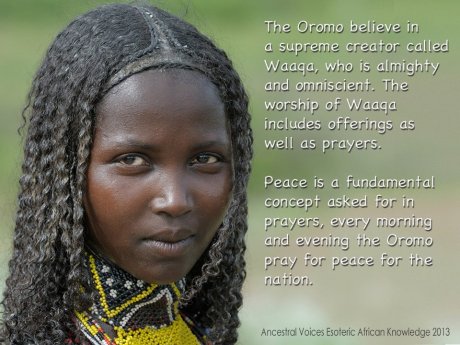Oromia and Kenya: Fascinating world of Kenya’s Borana Oromo People. #Africa. #Oromia January 24, 2015
Posted by OromianEconomist in Africa, Boran Oromo, Cushtic, Kemetic Ancient African Culture, Meroetic Oromo, Munyoo Oromo, Munyoyaya Oromo, Orma Oromo, Oromia, Oromiyaa, Oromo, Oromo Culture, Oromo Identity, Oromo Nation, Oromo Wisdom, Oromummaa, Rayya Oromo.Tags: Africa, African culture, African Studies, Borana Oromo, Kenya, Oromia, Oromiyaa, Oromo, Oromo culture, Oromo people, Oromummaa, Raya Oromo
trackback
Fascinating world of Kenya’s Borana Oromo
More information about Borana can be found at www.boranavoices.org

- The majority of the 500,000-strong Borana tribe live in Kenya but some also live in Ethiopia and Somalia
- Women use clarified butter (ghee) to keep their hair in perfect condition and wear it in elaborate plaits
- Girls have the crown of their heads shaved, with the hair only allowed to grow after they marry
- Other beliefs include the fear that having your photo taken removes some blood and steals your shadow
- They also believe in a single god named Wak, although more are converting to Christianity and Islam
A nomadic people, their lives revolve around finding good grazing for their herds of camels and cattle, which combined, provide everything they need to survive in the striking semi-arid scrub land they inhabit.
But while men dominate village life and are in charge of the herds, women play a vital role and are in sole charge of building Borana homes and performing the elaborate dances that signal the birth of a baby.
Dressed in her best: A Borana woman wearing traditional garb made from goat skins. The expensive dresses are now kept only for best

Rules: Many of the Borana’s rules apply to children, including a prohibition on addressing anyone older than themselves by their first name
With so little water to be had, their beauty routine is an unusual one and involves anointing their locks with ghee (clarified butter) to keep hair smooth and shiny.
Girls are given the most striking hairdos and wear the crown of their heads shaved until they marry, at which point the hair is allowed to grow back while the rest is plaited into elaborate designs.
But hair isn’t the only part of life governed by the Borana’s centuries-old laws. The majority of rules apply to children who, for instance, aren’t allowed to call anyone older than themselves by their first names.
Those names are also governed by tribal law and are inspired by the time of day they were born. ‘Boys born in broad daylight are always called Guyo,’ explains photographer Eric Lafforgue who took these incredible pictures.
‘Some are named after a major event, a ceremony (Jil), a rainy season (Rob) or a dry season (Bon). Others are named after weekdays while a few get odd names such as Jaldes (ape), Funnan (nose), Gufu (tree stump) and Luke (lanky long legs).’
Whatever their parents decide to call them, all children are given a place in the social pecking order at birth – and once done, it is rare for it to be changed.

Welcome: The birth of a baby of either gender is marked by a traditional women-only dance which welcomes the infant into the world

Hard work: Women are in sole charge of building Borana homes and since they move four times a year, have to work extremely hard


Elaborate: A woman carries milk in an engraved gourd and shows off a bead ring (left). Right: The chief’s wife is given special jewellery

Shaved: Girls such as this one have the crowns of their heads shaved until marriage. Afterwards, hair grows back and is plaited


Changing times: Traditionally, the Borana believed in a single god called Wak. Now Islam and Christianity are beginning to make inroads



Moving: Many of the young people are leaving the tribe behind for jobs in town, among them this trio who send money home to their families

Screened: Borana women are not allowed to come face-to-face with their son-in-laws. If they do, both must immediately cover their faces
The luckiest are the sons of village chiefs who are placed in the top grade, daballe, at birth and show their status with long locks that make them resemble girls.
As future chiefs themselves, no one is allowed to punish them, even when they misbehave, while their mothers gain an honoured place in society and are frequently asked to bless well-wishers.
These women are also given special jewellery to wear usually made from colourfully beaded leather, enlivened on occasion with recycled Coca-Cola caps.
Those who aren’t married to a chief, although often forced to share a husband, do get some special benefits including being in sole charge of who can and cannot enter their homes – spouses included.
‘A wife always decides who will enter in the house,’ explains Lafforgue. ‘If her husband comes back and finds another man’s spear stuck into the ground outside her house, he cannot go in.’
Women are also in sole charge of raising their daughters and usually insist that they become excellent housewives. Men, when they come to choose a wife, will often judge the girl by her mother, which makes getting it right all the more important.
Older women are honoured as the keepers of tribal lore, although not all of it makes sense to Western ears. ‘Old people are afraid of having their picture taken,’ says Lafforgue. ‘They believe that when you take their photo, you remove their blood and steal their shadow.’

New religion: An increasing number of Borana are becoming Muslim and have adopted Islamic customs such as the headscarf


Respected: Older women are honoured as keepers of village lore while this boy (right) is the son of a chief and can never be punished

Important man: This man is the overseer of one of the Borana’s network of wells. It is taboo to fight over water

Chief: The Borana elect a leader every eight years. The ‘father of the village’ wears a special headdress called a kalacha

Home: Women have the final say on who can enter their homes. If a man finds another man’s spear outside his wife’s hut, he can’t go in

Laborious: Women are tasked with building all the houses, as well as dismantling and rebuilding them when the village moves on

Livelihood: The Borana’s cattle and camels are their most precious possessions and are nearly always cared for by men
Sorce: TKG News
For more click Borana Voices
Source: http://ayyaantuu.com/horn-of-africa-news/oromia/fascinating-world-of-kenyas-borana-oromo-tribe-revealed/


[…] https://oromianeconomist.com/2015/01/24/oromia-and-kenya-fascinating-world-of-kenyas-borana-oromo-pe… […]